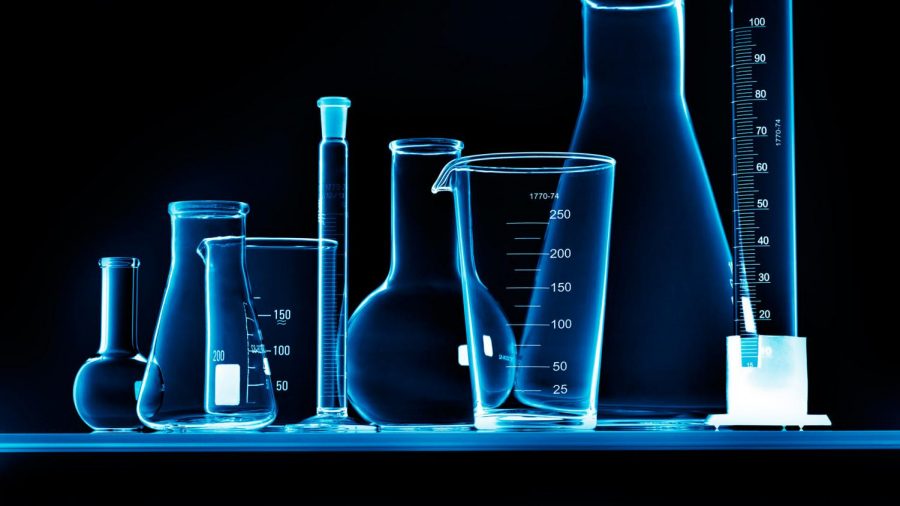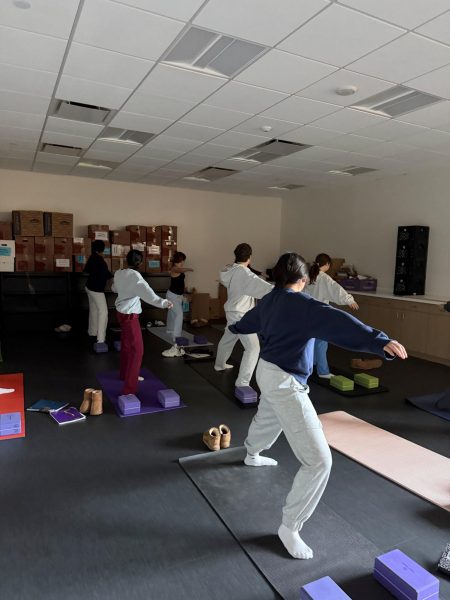New Semester Science Electives for the 2020-21 School Year
Starting in the 2020 – 2021 school year, the Greenhill science department will offer two new semester courses for Upper school students: Human Reproductive Biology and Climate Science.
The two courses serve as a deeper dive into topics already discussed in introductory or advanced science courses as well as in everyday life. Currently, Upper School Science teacher Barry Ide anticipates that he will probably be teaching both elective courses. However, since teachers’ schedules change depending on student interest, nothing is set in stone.
Human Reproductive Biology will continue students’ familiarization of with their reproductive biology, personal development as well as their expression of gender and sexuality. It will be offered in the second semester with the prerequisite of any level of biology.
“Reproductive biology is hugely important from many standpoints, especially for folks in high school going through that critical time in their life where they are starting to think about their sexuality, identifiers and procreation among other aspects of their health,” said Upper School Science Department Chair Treavor Kendall.
The course covers a wide range of topics that explore and represent the variety and complexity of human sexuality. Some of these topics include the evolution of sexual reproduction, sexual anatomy and activity, fertility, sexually transmitted infections, pregnancy and childbirth as well as puberty.
Human Reproductive Biology stems from an attempt to help meet a stated need that the student body has expressed over the past several years, according to Ide. He explained how there have been times that the student government has met and said they don’t feel like they are getting accurate information about their bodies, development or sexual health.
“It’s important to insert the scientific underpinning behind this topic,” said Kendall. “There are social and psychological implications, but there is also some hardcore biology that is relevant not only in terms of gender identity but also with reproductive health and making choices based on understanding.”
While sometimes difficult to discuss, teach or learn about, reproductive health and biology is a topic that is relevant to every high school student.
“There will be elements of conversations that are hard to talk about, especially in a public forum,” said Kendall. “But this class is going to be designed to help with that and frame the conversation so that there is an effective discussion because in some cases, peoples’ lives depend on it.”
Along with Human Reproductive Biology, the science department is rolling out another relevant course to students today: Climate Science.
Climate Science is a semester course whose goal is to use effective argumentation to clarify concepts related to climate science and anthropogenic climate change. The course will be offered during the first semester with the prerequisite of the completion of a year of any level of both chemistry and biology.
The course focuses immensely on making and supporting claims based on sufficient evidence and reasoning, a common science practice among all disciplines.
“Climate Science will help students develop skill in claim-evidence-reasoning as it pertains to our climate, past climate or future projections for our climate,” said Ide. “It’s really important for students to be able to look at data themselves and draw conclusions as it is a good general scientific practice and critically important with regard to climate.”
Climate Science is very different from other science courses offered at Greenhill including Advanced Placement Environmental Science and another science elective called Science and Sustainability, according to Ide.
“AP Environmental Science focuses on all aspects of the environment, and Science and Sustainability is about how to engage in sustainable practices that can minimize impact,” said Ide. “Climate Science is more narrowly focused on one particular topic which is what we know about climate and what does the data tells us about how climate might or might not change.”
Upper School students believe that these semester courses will give them a more focused approach on their individual interests.
“I am excited for these semester courses because they stray from the typical science courses that include physics, biology and chemistry,” said Junior Jung Min Yean. “They will allow us to choose a specific genre of science that we can explore for a whole semester, and help us gain a deeper knowledge of all that the science field offers.”


